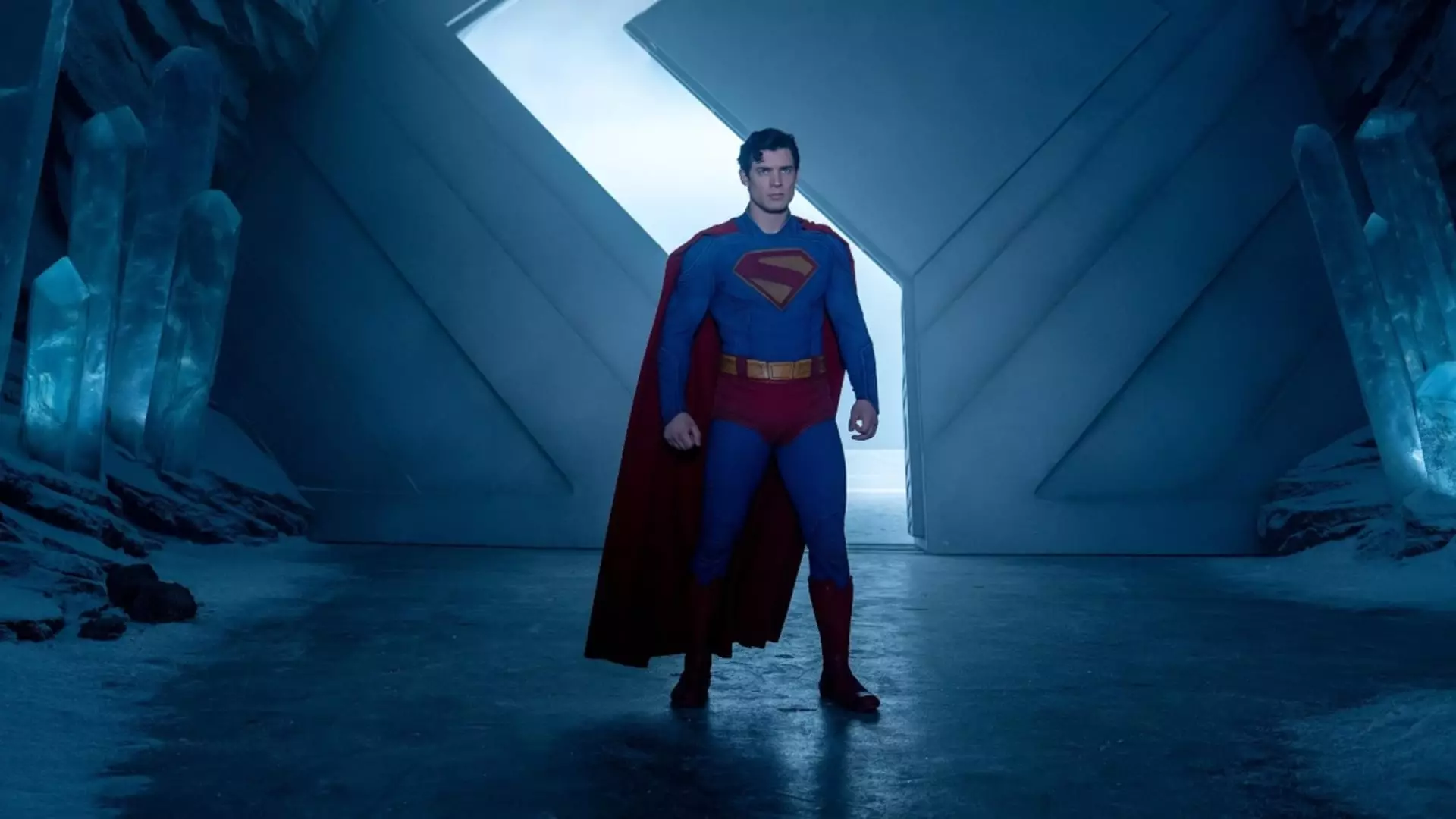For years, Superman has been a symbol of hope, strength, and moral integrity in the superhero universe. Yet, despite his iconic status, recent cinematic attempts to reintroduce him to audiences have struggled to reignite his former glory. Warner Bros.’ latest venture, under the strategic guidance of James Gunn and Peter Safran, represents a bold gamble to revive the Man of Steel’s relevance amid a saturated market. The opening preview numbers—$22.5 million—suggest Hollywood is still convinced Superman possesses latent power to captivate. However, these figures, impressive as they are for a preview, are not a guarantee of long-term success. They are preliminary indicators in a landscape where brand loyalty is waning, and audiences demand more substantial narratives.
While the early numbers are promising, they are also a reflection of an industry craving renewal. When “Superman” vaults into full release, expectations will be sky-high—not just for box office performance, but for the cultural significance of this reimagining. The film’s potential to succeed hinges on whether it can transcend superficial heroism and deliver a story that resonates with a skeptical modern-day audience. The narrative must strike a delicate balance: preserving the essence that made Superman a household name while daring to reconfigure his story for a new era. This tightrope walk reveals the fragility of such franchise revivals, which often stumble when trying to satisfy both nostalgic fans and new viewers.
The Industry Stakes and Market Realities
In a broader context, Warner Bros.’ strategic investment in Superman indicates a deep understanding of the superhero genre’s current landscape. The fact that this preview performance ranks third among DC films highlights the franchise’s ongoing allure. Yet, it also underscores the brutal competition among superhero franchises globally. Marvel Studios has been dominating the box office with consistent hits, leaving DC to fight for supremacy through strategic reboots and reinvention.
Of course, the financial stakes are not merely about a single film’s opening. Analyst predictions of a $130-140 million gross during the opening weekend signal a realistic yet ambitious target. These numbers are crucial because they will influence Warner Bros.’ subsequent investments and the broader DC universe’s trajectory. If “Superman” fails to meet expectations, it could cast doubt on the entire reboot strategy, prompting reevaluation of how these properties are developed and marketed.
On the other hand, a strong opening could solidify the importance of star-driven franchises in the modern era. It would affirm the strategic shift towards premium screens and high-quality storytelling—an approach that seems to be paying dividends, at least in preview numbers. Yet, it raises questions about sustainability: can a blockbuster still be a sustainable franchise if it hinges on spectacle and nostalgia rather than innovation?
Rebooting with Purpose or Repeating Old Mistakes?
Gunn and Safran’s leadership marks an interesting turning point. Their track record—blending critically acclaimed projects with commercially successful franchises—suggests they understand both the technical and cultural nuances needed to revitalize DC. However, their approach is not without pitfalls. Fan demand is a double-edged sword; while brand loyalty provides a foundation, it can also lead to unrealistic expectations that hinder creative freedom.
Crucially, their vision for a 10-year plan to shape the DC universe sounds promising but is also inherently risky. Long-term planning might stabilize the brand, but it can also trap creators into a conservative cycle, reluctant to push boundaries for fear of alienating core audiences. The challenge lies in crafting stories that respect the character’s legacy while boldly expanding their horizons.
Moreover, the current critical reception—an 83% rating from critics on Rotten Tomatoes—serves as a double-edged badge. It indicates a relatively positive reception, yet it also reveals the subjective nature of film critique. Audience responses will ultimately determine whether the film meets its lofty ambitions or succumbs to common franchise pitfalls: overreliance on spectacle, lack of originality, or superficial character development. If “Superman” becomes a hit, it might invigorate the franchise; if it falters, it risks dragging the entire reboot strategy into ignominy.
Hollywood’s Power Play and the Future of Heroic Narratives
The broader implications extend beyond the fate of Superman. They touch upon the very fabric of Hollywood’s economic and cultural power structures. In a time when streaming platforms threaten traditional theatrical releases, Hollywood’s survival increasingly depends on blockbuster spectacle capable of drawing massive audiences into cinemas. Superman, as a symbol of American pop culture, embodies that core. If Warner Bros. can ignite a new chapter that appeals broadly, it could shift the balance of power within the superhero genre.
However, skeptics argue that American film audiences are tiring of recycled formulas, craving authentic storytelling and diverse voices. The risk for Warner Bros. and the entire industry is that trying to force a character like Superman back into the cultural conversation might backfire if the story feels stale or disconnected from contemporary issues. The challenge for Gunn and Safran is not just to revive Superman but to do so in a way that aligns with a broader cultural dialogue—one that emphasizes responsibility, hope, and resilience without devolving into predictable hero-mongering.
If they succeed, it might mark a turning point where superhero films are less about spectacle and more about meaningful narratives. If they fail, it could underline Hollywood’s inability to adapt meaningfully to an audience that is increasingly skeptical of franchise overreach. The stakes have never been higher—or more revealing—about the true power and limitations of superhero mythology in shaping modern culture.

